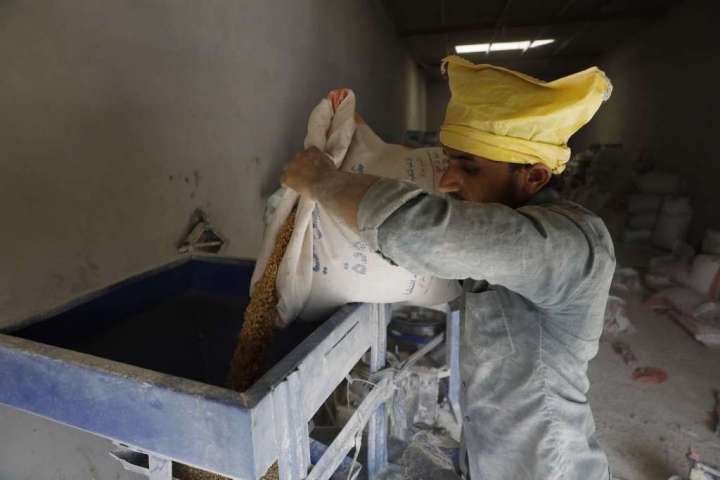Financial aftershocks from the war in Ukraine are hitting dozens of countries that are still reeling from the pandemic, fueling a global “cost-of-living crisis” that has driven 71 million people into poverty just since March, the U.N. Development Program said on Wednesday.
Casualties from war in Ukraine include millions of the world’s poor

High prices for oil and wheat are hammering countries that borrowed heavily last year to fund pandemic relief, leaving little public money for measures that would take the sting out of rising costs, officials said in a new report.
Many countries are resorting to broad energy subsidies that will be less effective at reducing poverty than programs targeted to help those suffering the most, the U.N. agency warned.
With the Federal Reserve and other central banks raising interest rates to fight inflation, officials fear slowing economies could topple into a recession that would make the situation even worse. Global leaders must “stabilize a global economy that is facing multiple crises right now that are translating in just a matter of months into an enormous impact on people’s livelihoods, incomes and ability to feed their families,” Steiner said.
The U.N. development agency is the latest international body to warn of the escalating costs of the Ukraine conflict. Last month, the World Bank lowered its growth forecast, warning that the global economy could be headed for a 1970s-style episode of rising prices and sluggish growth known as “stagflation.”
Prices for energy and fuel spiked after Russia’s invasion of Ukraine, with oil jumping more than 30 percent and wheat soaring by 70 percent. Both have retreated in recent weeks, though analysts at Capital Economics expect commodity prices to remain at elevated levels.
“We expect higher prices to be with us for a long time,” said Caroline Bain, chief commodities economist for Capital Economics.
Moves by several countries to ban crop exports as prices spiked have punished nations that depend upon imported food, such as Bangladesh, Lebanon and the Republic of Congo, two World Bank officials said in a blog post Wednesday.
As of early June, 34 countries, including Russia, Kazakhstan and Turkey, had imposed restrictions on shipments of wheat and other agricultural commodities, said the post by Mari Elka Pangestu, the bank’s managing director of development policy, and Axel Van Trotsenburg, managing director of operations.
Poverty, measured by the number of people surviving on less than $3.20 per day, grew faster in the war’s first three months than it did during the first 18 months of the pandemic, according to George Gray Molina, the U.N. development agency’s chief economist.
But the economic situation had been growing more dire even before the fighting started. Extreme weather events last year, including drought in Africa, pushed the cost of agricultural imports higher. And oil prices began rising in 2021 as demand revived during the global economic recovery from the pandemic.
The countries hardest-hit by the current inflationary spike — such as Uzbekistan, Sri Lanka and the Kyrgyz Republic — have few resources left to battle the latest calamity. Already burdened by high debt loads, they will need help from richer countries and multilateral organizations. Up to 80 countries “urgently” need debt relief, Steiner said.
But existing programs intended to ease debt service costs for poor countries have made little headway, leaving Steiner to reiterate earlier calls for world leaders to act.
The war-related effects are landing on governments that already face daunting challenges,, including mitigating the effects of climate change and reversing the educational losses suffered during the pandemic, the report said.
For now, policymakers in dozens of countries are focused on easing the financial burden for households struggling to afford more expensive food and fuel. Many governments are relying on blanket energy subsidies, which are easy to administer but wasteful. By making energy more affordable for rich and poor alike, they encourage consumption.
Cash payments targeted to lower-income individuals are more effective at blunting the growth in poverty. But they are harder to implement, requiring systems such as biometric screening and digital payment systems.






